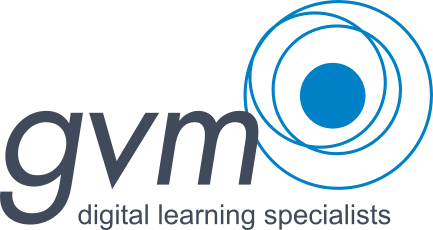If 2020 taught us anything (and, well, it has had a few lessons)… is to invest in future-ready, tech-savvy Learning and development teams.
The pandemic forced many of us to dust off old-school methodologies and catapult swiftly into fresh new learning paradigms including, but not limited to transitioning to digital training.
Never has there been a more pressing need for employees to continue to upskill and re-skill as there is now. And not just in any one sector (Private, Government etc). This applies across the board.
Careers and lives are locked in a tango over a fast-evolving landscape of business transformation, and we all need to keep up and continue to re-invent ourselves or risk becoming stagnant.
To navigate said landscape with success, Learning and development teams need to re-group and re-invent themselves as well.
Here are a few pointers that might help with that:
Measure the impact of your training with Hard data:
This is probably one of the biggest challenges facing L&D professionals today (Local government or otherwise).
Mapping out the potential ROI on a procurement project involving L&D can be tricky without the right data to present a compelling business case.
How do you go about demonstrating the positive correlation between new Educational tech and business results?
Traditional ROI metrics don’t work as well for L&D (as they would for sales and marketing for example). Therefore, it is important to invest in data-analysis training for yourself and your L&D team.
Data driven insights will paint a far more compelling picture when putting together that business case in favour of ambitious procurement plans in the L&D Space. L&D analysts need to build skills in data science to map the collected data against organisational performance to measure impact.
This data will be the driving force behind training decisions going forward.
Develop Learner Personas (to better understand your learners)
Do a full review of ‘learner-centric’ approaches and learning solutions.
It does not help anyone if you are dishing out the same training over and over again with little uptake from learners because the learning strategies did not take user psychology into account.
Build learner personas.
Do a deep dive into the learning experience as perceived through the learner’s minds and imaginations.
Reframe content in a way that empathises with their learning needs, motivations and attention spans.
Learning about neuroscience in learning can be an amazing asset if you’re willing to explore creative ways to increase engagement.
If this post pandemic world (… should we be calling “post” pandemic yet? I hope so!) has taught us anything, it’s time to stop recycling outdated, ineffective learning strategies and begin focusing on everything that will drive more engagement. We live in a data-saturated reality where we are going to be constantly competing for the attention of our learners. Engagement is key.
Even when picking out courseware to roll out to your staff from external vendors, always look out for content that’s creative with the use engagement strategies… (videos, animations, relevant case studies, good instructional design… etc, and not text heavy and outdated. You want e-Learning modules, not e-reading!)
Keeping up-to-date with emerging technologies
Better learning experiences don’t just magically occur.
One needs to learn to leverage appropriate educational tech to manifest just-in-time, in-context learning.
Right now, we are at the center of the brilliant storm which is churning out a host of emerging technologies taking part in the digital transformation of workplaces.
xAPI is the future of the Learning Management system. (And even through it’s new to Australia still, there are many trailblazers who have taken that leap into the world of xAPI to achieve unbelievable results and progress really addressing the coal-face of training and addressing the 70-20-10 problem). In recent years, AI and augmented reality have also taken center-stage.
Ideally, a Learning and Development technologist would benefit from staying up to date will all current and emerging technologies.
But sometimes, it simply isn’t possible to keep up with everything that’s coming out, and sometimes, it is far more effective to select the right ICT vendors who bring decades of experience in their chosen fields to the table to consultatively guide your organisation into the future.
L&D to have a “seat at the table”
Being a learning and development business partner means perceiving, talking, listening, understanding, thinking deeply and responding and communicating at the highest levels of effectiveness.
L&D should play a huge part in the decision-making processes that shape learning infrastructure, so that learning and development is prioritised in the organisation’s business strategy.
L&D professionals need clear action plans to tackle performance needs that exist or may arise in the future. This means having crystal clear understanding of employee and wider organisational goals and sometimes, getting creative.
Sometimes, organisations will need to turn to L&D to unearth and understand the big questions and challenges. Senior leaders should be looking to L&D to see planning and efforts that save time, energy, resources and drive actual results.
My conclusion?
For better or for worse, our world has changed forever.
This change seeped into certain sectors faster than others (for better, or for worse).
Some have adapted quickly. Others, less quickly.
But sooner or later, the ripple effects of all this transformation will echo through the collective economic psyche of our entire world.
Now, more than ever, we need to truly understand our audience when we become architects of their learning narrative. We need to create evolved learning programs which allow organisations to adapt quickly and thrive in a constantly changing workplace ecosystem.
And one cannot stress enough on the importance of investing more in L&D as this, among many other things, will result in your organisation attracting and retaining the best talent and map out socially responsible approaches to the future of work.



